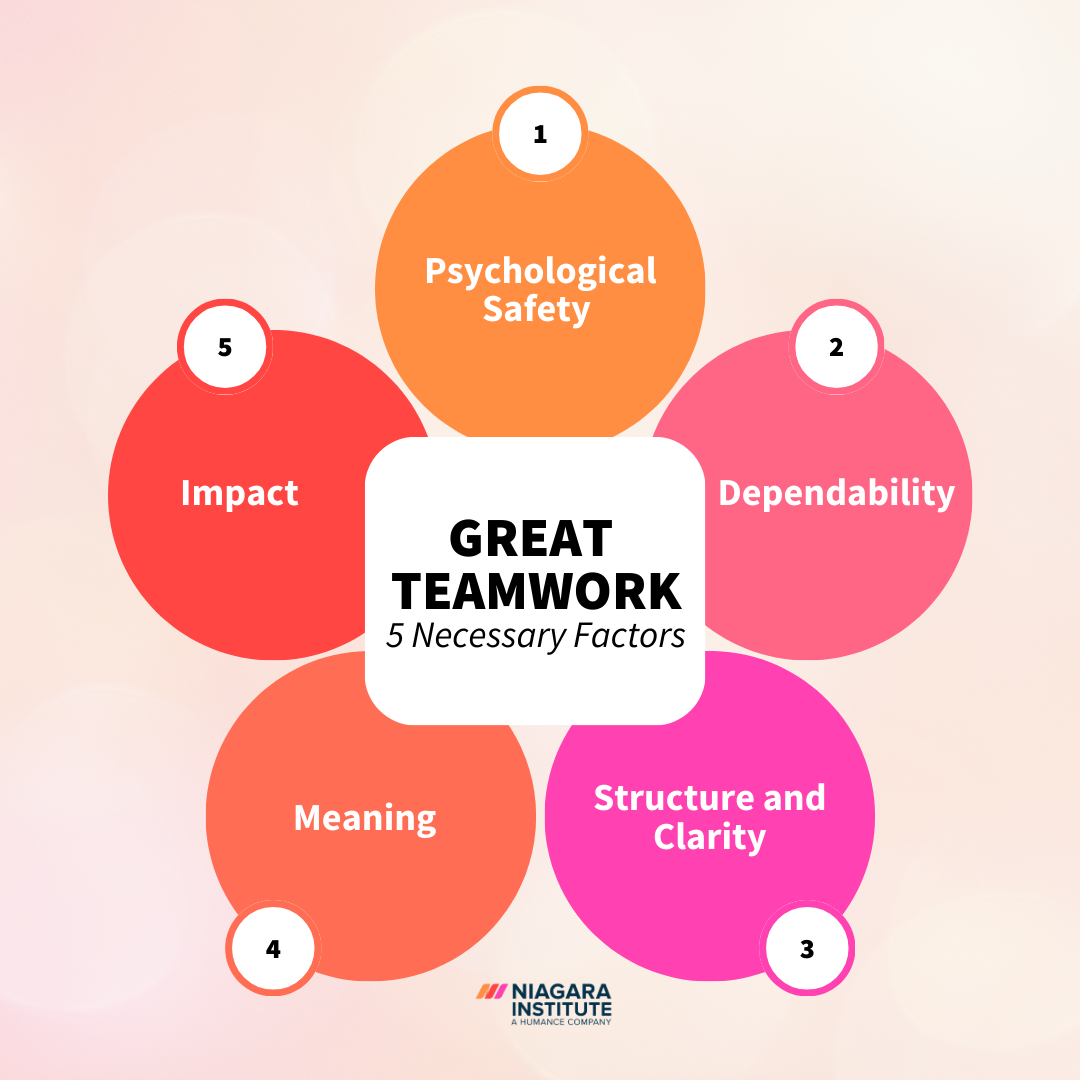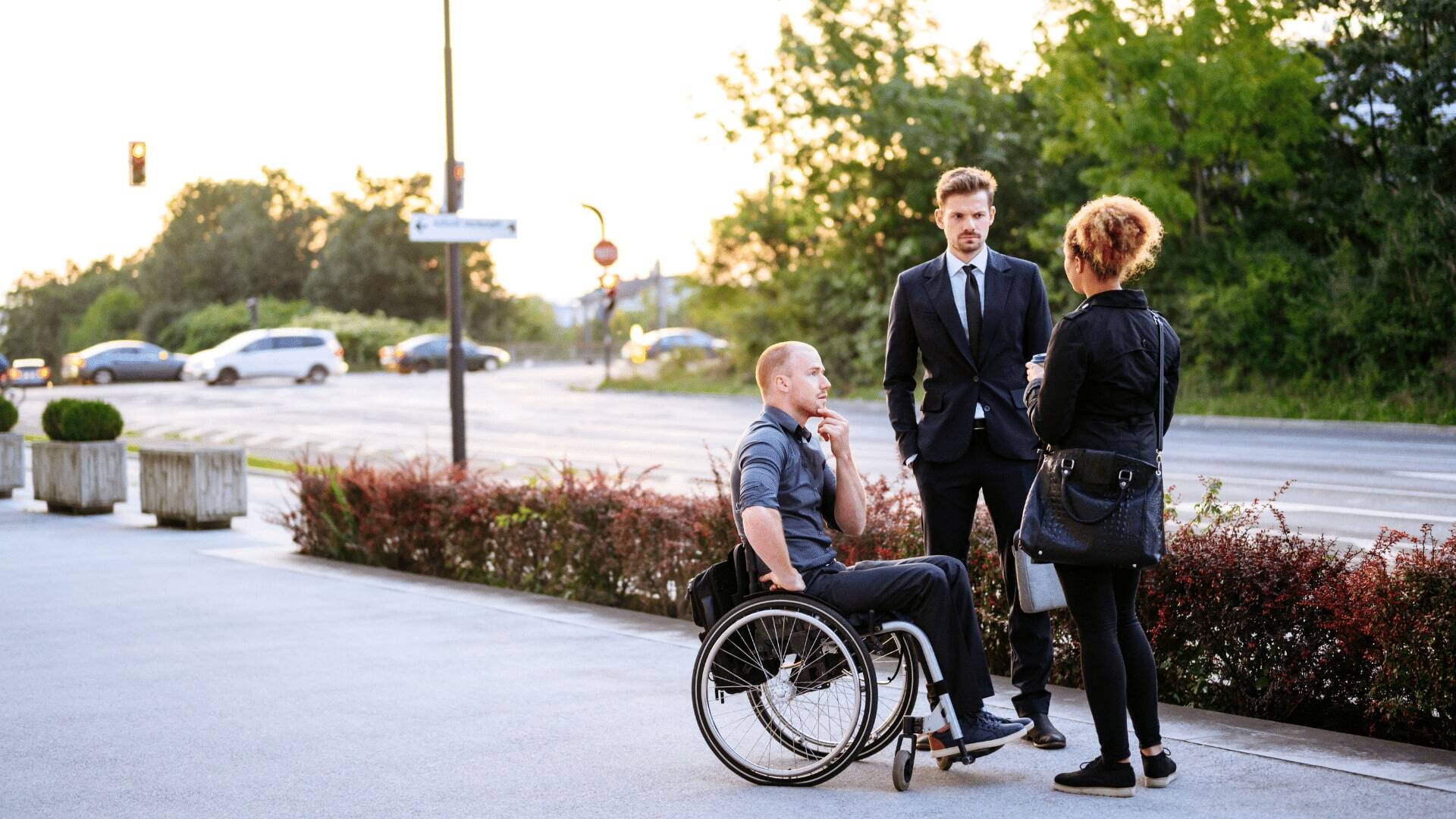6 min read
Infographic: The Importance of Teamwork
You don’t have to go too far to find examples of the importance of teamwork. From sports teams that have a legacy of winning, to the scientists that...

Great results are the hallmark of great teamwork. Now, think of the impact of great teamwork happening across all teams in an entire organization. In the pursuit of obtaining just that, Google set out to understand what factors led to team success so that they could replicate it across all teams at Google.
Google brought together statisticians, organizational psychologists, sociologists, engineers, and researchers for Project Aristotle. This research project was to answer one fundamental question: what makes a team effective at Google? To answer this, they studied 180 high and low-performing teams within Google, conducted over 200 interviews, reviewed external studies related to teamwork from the past 50 years, and analyzed over 250 different team attributes to find out how the composition of a team and team dynamics impact team effectiveness.
So, what were the results? Simply put, “researchers found that what really mattered [in regards to great teams] was less about who is on the team, and more about how the team worked together.” More specifically, the following characteristics were what researchers identified as the key differentiators between high-performing teams and their lower-performing counterparts.

According to the Harvard Business School professor who coined the term, Amy Edmondson, psychological safety is defined as “a shared belief held by members of a team that the team is safe for interpersonal risk-taking.” When team members feel psychologically safe, they are more likely to contribute their unique perspectives, ideas, and skills without fear of judgment or reprisal. This environment encourages open and honest communication, leading to effective collaboration, problem-solving, and innovation.
To take a pulse to see if your team is set up for great teamwork by having an environment of psychological safety, Edmondson created the following list of questions. They will help you gauge the current team environment and culture and identify areas of improvement.
Think of a time you were on a team, whether it be work, school, or sports team, and you felt the success of the team sat squarely on your shoulders. It's an exhausting, infuriating, and, unfortunately, all too common experience. So, what would have made a difference?
First dependability. Great teamwork can only happen if everyone does what they say they are going to do on time and to the best of their abilities. They don’t pass the blame, shirk responsibilities, or make excuses. In other words, every team member has a high level of accountability. So, not only do they follow through on their promises and commitments, but they own the consequences of their behaviors and actions, for better or worse.
The second thing that makes a difference is having a team leader who holds team members to their word and keeps them accountable for the team's mission. While you might think everyone should be highly dependable and accountable all on their own, the fact is everyone has competing priorities, responsibilities, and ideas. That’s why team leadership is so important. A strong team leader will step in before an individual's promise falls short, offer support, and assign resources accordingly. Doing so not only ensures the success of the individual but of the entire team.
An important characteristic of great teamwork is structure and clarity. When a team has a clear structure from the get-go, every team member understands “job expectations, the process for fulfilling these expectations, and the consequences of one’s performance.” However, structure and clarity are unlikely just to happen, rather, it takes intentionality on the part of the team’s leader. If you’re the team leader, you can provide structure and clarity by hosting discussions with the team about the mission at hand and what’s involved, defining roles and responsibilities, creating processes as a team, and collectively agreeing to follow them.
One word of warning, though: be mindful of the fact that structure empowers while rules stifle. As long as you can provide clarity on the team’s structure and processes, demand high accountability and dependability, and create a psychologically safe environment, the need for rules should dissipate, and team members should be left empowered to do what they do best.
Project Aristotle found that the sense of purpose team members find in either the work itself or the output impacts the overall team’s effectiveness. This shouldn’t come as a surprise, as a personal sense of purpose has been a rising factor in employee engagement, satisfaction, and turnover for some time.
In fact, according to McKinsey, “Research has found that when employees find their work to be meaningful, their performance improves by 33 percent, they are 75 percent more committed to their organization, and are 49 percent less likely to leave. Moreover, over the past 30 years, Americans have identified meaningful work as the most important aspect of a job—ahead of income, job security, and the number of hours worked.”
Clearly, meaning is critical to great teamwork, and team leaders play an important role in ensuring team members find meaning in their work. They do so by communicating the organization’s mission, vision, and values and helping team members understand how their individual roles and the team contribute to the bigger picture and how their work aligns with the organization's purpose.
The fifth and final characteristic of great teamwork is impact; does the team feel the work they are doing matters and makes a difference? In a LinkedIn Global Trends study, it was found that 74% of millennial candidates want a job where they feel like their work matters.
For great teamwork to happen, teams need to understand and see how their work is contributing to the organization and helping it reach its goals. When a team sees tangible outcomes and positive changes resulting from their efforts, it provides a powerful sense of purpose and validation. Witnessing the impact creates a direct connection between the team’s work and the greater goals or objectives they strive to help achieve.
To have a great teamwork, you should first start with building a great team.
Building a great team takes more than just bringing smart people together. It takes purpose, trust, and effort. Let’s look at some simple ways to make your team amazing.
People need to know what they’re working for. Make sure everyone understands the team’s goal. Keep goal setting simple and clear. This way, everyone knows where they’re headed and why their work matters.
A great team has different kinds of skills. You don’t need everyone to be the same. Instead, find people who bring something unique. Hire those who care about the same values, but have different strengths. This way, they fill each other's gaps.
Communication is key. Create a space where people feel safe to share their ideas. Make sure everyone is heard and has a voice. Listen to each other. When people feel heard, they’re more likely to do their best work.
Building trust with team isn’t an overnight thing. It starts with small steps. Be honest with your team. Respect their skills and their time. Show them you trust them, and they’ll trust you back.
Every win matters, no matter how small. Take time to celebrate these moments. It keeps everyone motivated. When things don’t go well, talk about it openly. Mistakes are just chances to learn. The more you learn together, the stronger you grow.
A happy team is a productive team. Make the work environment positive. Encourage each other. Laugh together. Balance hard work with some fun moments.
Great teams are built over time. They take care, patience, and understanding. Keep showing up for your people, and they’ll show up for each other.

6 min read
You don’t have to go too far to find examples of the importance of teamwork. From sports teams that have a legacy of winning, to the scientists that...

8 min read
Teams are found in every industry and across every function. From medical scientists coming together to find a cure to experts at NASA creating the...
.jpg)
7 min read
Leading a team where there is a lack of collaboration among employees can be a disheartening experience. Particularly if you can clearly see that...